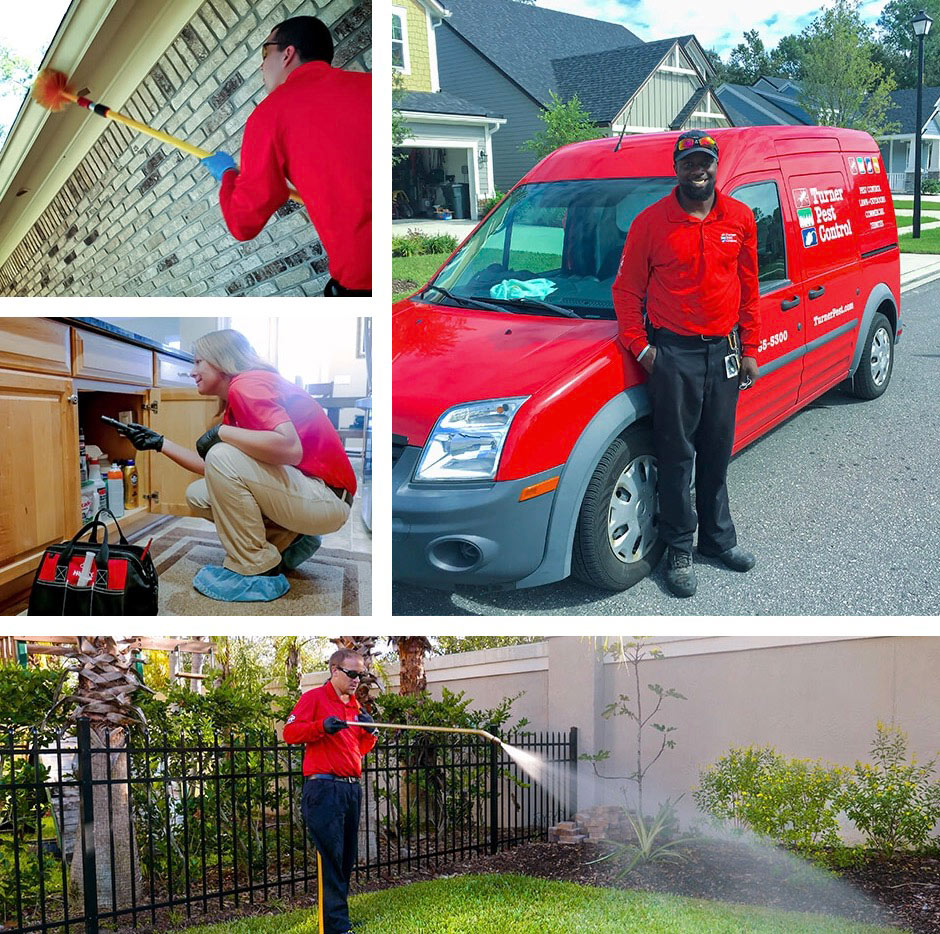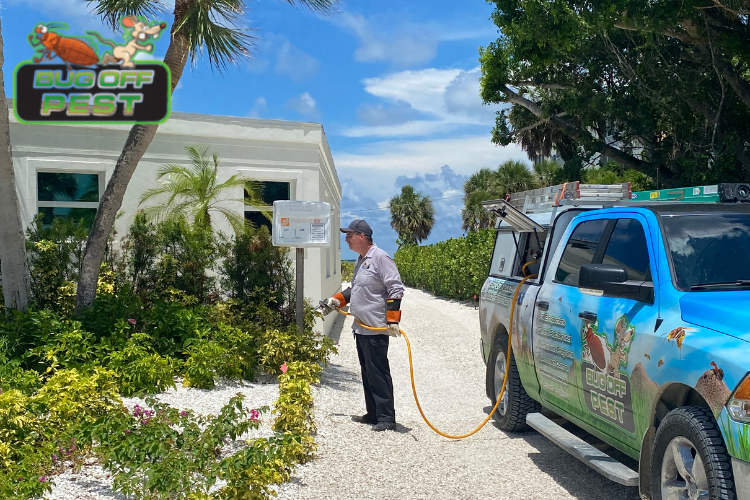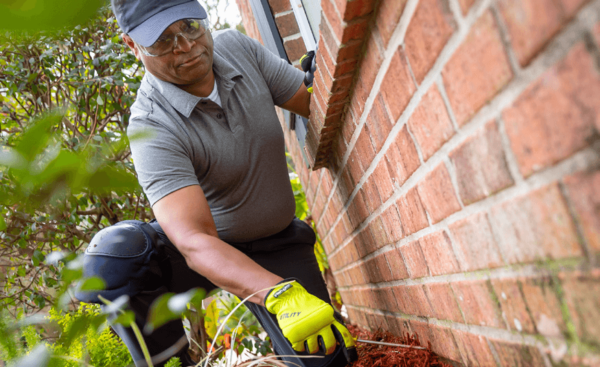Dependable Rodent Control Port Charlotte to Keep Your Property Pest-Free
Uncover the Importance of Pest Control in Preserving a Healthy Atmosphere and Treatment Techniques

The Duty of Insects in Ecological Communities
Bugs, frequently watched solely as problems, play a complex role in environments that is vital for keeping ecological equilibrium. They contribute considerably to numerous ecological processes, consisting of pollination, nutrient cycling, and insect control. For example, many insect varieties, such as butterflies and bees, are crucial pollinators for a variety of plants, which subsequently supports biodiversity and food production.
Additionally, parasites function as victim for many killers, developing an important link in food webs. This interdependence guarantees the survival of numerous species and helps control populaces within ecosystems (Termite treatment Port Charlotte). Additionally, decomposer bugs, such as particular beetles and fungis, are important in breaking down raw material, therefore enhancing soil and promoting nutrient recycling.
Alternatively, while parasites can be beneficial, their overpopulation or invasion right into non-native settings might interrupt these environmental features. This complexity highlights the significance of understanding insect dynamics, as efficient bug monitoring approaches need to consider both their ecological roles and possible influences on human activities. Balancing pest presence while decreasing injury is crucial for maintaining the stability of environments and making sure agricultural performance.
Wellness Dangers Related To Parasites
The existence of pests in different environments expands beyond their eco-friendly functions, as they also present significant wellness threats to animals and human beings. Lots of pests, consisting of pests, rats, and parasites, are providers of conditions that can have major wellness implications. Rats are known to transfer hantavirus and leptospirosis, both of which can lead to extreme respiratory and renal problems, respectively.
Insects such as ticks and insects are infamous for spreading vector-borne illness like jungle fever, dengue fever, and Lyme disease. These diseases can cause high morbidity and mortality rates, especially in prone populaces. In addition, pests like insects and roaches can aggravate allergic reactions and asthma, adding to breathing issues in individuals, particularly those with pre-existing conditions.
Moreover, the existence of bugs can bring about emotional stress and discomfort, impacting overall wellness. Contamination of food and surface areas by parasite droppings and continues to be can bring about foodborne illnesses, highlighting the importance of maintaining sanitary problems. Recognizing the health and wellness dangers associated with pests is vital in identifying the requirement of effective pest monitoring approaches to secure human and animal wellness.

Benefits of Effective Insect Control
Efficient bug control is crucial for maintaining a healthy and balanced and safe atmosphere, as it consistently reduces the many dangers related to insect infestations. One of the primary benefits of reliable insect administration is the reduction of carcinogen. Pests such as rodents, cockroaches, and mosquitoes are vectors for illness that can impact both animals and humans. By regulating these populaces, the probability of illness transmission is substantially reduced.
In addition, efficient pest control safeguards residential or commercial property and frameworks from damage. Numerous pests, like termites and woodworker ants, can cause considerable structural damages that may call for expensive fixings. By proactively handling these homeowners, invasions and businesses can protect their investments.
An additional significant advantage is the enhancement of general quality of life. A pest-free environment adds to psychological navigate here health and reduces tension linked with problems. Furthermore, effective insect control cultivates a more secure environment for children and family pets, making sure that homes continue to be refuges without disease-causing organisms and damaging chemicals.
Typical Insect Control Methods

In the realm of bug administration, various methods are employed to battle invasions effectively. These methods can be broadly classified right into three primary techniques: social, mechanical, and chemical controls.
Cultural control involves modifying techniques to decrease parasite survival, reproduction, and establishment. This might include plant turning, proper hygiene, and habitat control, which jointly produce a setting less favorable to pest spreading.
Mechanical control employs physical methods to get rid of bugs (Termite treatment Port Charlotte). Techniques such as barriers, vacuums, and traps are frequently made use of to straight get rid of parasites from a location. This approach is particularly effective for managing rodents and insects without using damaging chemicals
Chemical control includes the application of pesticides to handle insects. These compounds can be categorized into herbicides, fungicides, and pesticides, each targeting particular kinds of pests. It is crucial to use these chemicals judiciously, sticking to safety and security standards and policies to reduce potential injury to non-target varieties and the atmosphere.
Each insect control technique has its restrictions and advantages, and often, an incorporated technique integrating multiple approaches produces the best lead to preserving a pest-free environment.
Lasting Bug Management Practices
Lasting bug management techniques include a variety of approaches created to minimize ecological impact while effectively managing pest populaces. These practices focus on making use of eco friendly approaches over chemical pesticides, thus reducing the danger of damage to non-target types, consisting of valuable bugs, wild animals, and humans.
Integrated Bug Management (IPM) is a foundation of sustainable practices, incorporating biological, cultural, mechanical, and chemical methods to manage bugs. For example, biological control entails introducing natural killers or bloodsuckers to suppress bug populaces. Social methods, such as plant rotation and polyculture, interrupt pest life process and enhance ecological community durability.
Mechanical approaches, such as barriers or traps, can properly prevent insect gain access to without chemical treatment. Furthermore, keeping healthy and balanced communities with appropriate dirt monitoring, plant wellness, and biodiversity can normally mitigate pest issues.
Education and awareness are important elements, equipping neighborhoods and people to acknowledge bug dangers early and carry out safety nets. Termite treatment Port Charlotte. By cultivating an Read More Here all natural strategy that stabilizes parasite control with eco-friendly honesty, lasting insect administration practices not only shield frameworks and crops but also add to a much healthier why not try here setting for future generations
Verdict

Comprehending the wellness threats linked with insects is essential in identifying the requirement of effective bug management approaches to protect human and animal wellness.
Reliable insect control is essential for preserving a safe and healthy and balanced environment, as it constantly mitigates the countless threats associated with insect invasions.Integrated Parasite Administration (IPM) is a keystone of sustainable methods, combining biological, social, mechanical, and chemical tactics to handle parasites. By understanding the function of parasites, acknowledging affiliated health and wellness threats, and using diverse treatment strategies, a sustainable method to pest monitoring can be achieved. Integrated Insect Administration (IPM) stresses a holistic approach that alleviates injury to advantageous organisms while properly regulating pest populations.